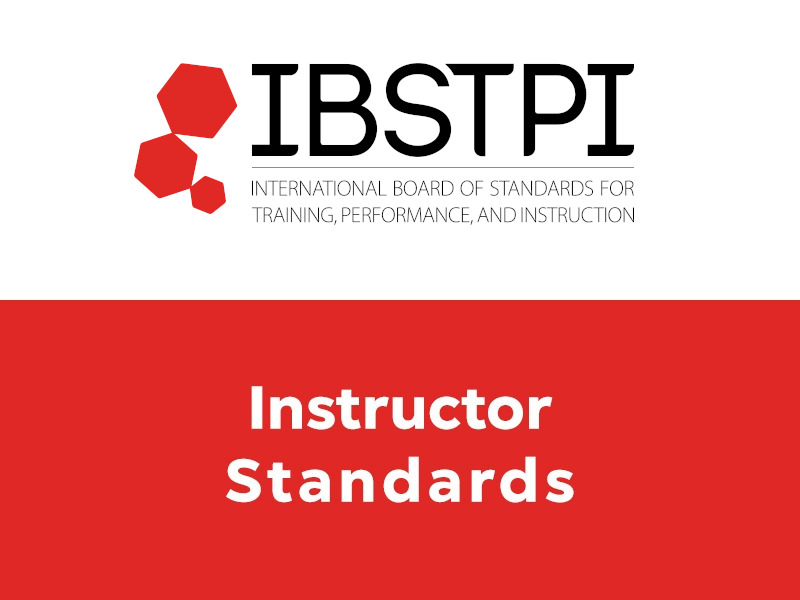Instructor Competencies
What do instructors do?
Instructors facilitate courses and other instructional events. They do so face-to-face and in live virtual classrooms.
Who benefits from the Instructor Competencies?
People who employ or work as instructors—professionals facilitate learning in face-to-face and virtual classrooms.
These competencies also benefit programs that prepare instructors, such as programs in Adult Education, Career and Vocational Education, Educational Technology, and Human Resource Development.
What’s in the Competencies?
Each IBSTPI competency model represents a hierarchy of competence, including:
- Domain—Broad areas of competence required for a position
- Competencies—Specific areas of competence within a domain
- Performance statements—Underlying skills needed for each competency
Date: 2021
This latest version of the instructor competencies is grounded in research, theory, and evidence-based practices applicable in today’s physical and digital learning environments. In the wake of a global pandemic, instructors at all levels have been called upon to adapt quickly to new formats and rapidly changing digital tools. With all these changes, a focus on the learner is now imperative.
In response to today’s rapidly evolving instructional landscape, the 2021 IBSTPI® Instructor Standards further discriminates competencies in three categories: core (regardless of modalities), blended learning, and online learning.
How you can trust these competencies:
These IBSTPI competencies were validated globally with a sample of more than 1,000 practitioners working in both face-to-face and online environments in all regions of the world.




